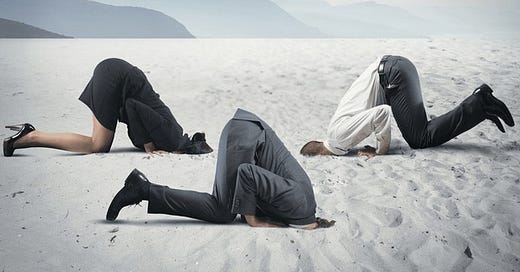More normal post next week, but today, some meditations on the moment.
At noon today, I wasn’t watching the inauguration. The radio and the TV were off; my spouse was away on a business trip, and my daughter was under grandparent supervision for the day, sledding on six fluffy inches of freshly fallen snow. At home, I was blazing through preparation for a new class I’m teaching, sending out queries and pitches for future projects, writing notes and responding to edits and emails and other outstanding tasks. Only once my daughter had been returned, fed, and put to bed did I finally have time to read the news, and to truly take in what had transgressed today. And just as I expected, it broke my heart. And then I had to do the dishes.
When I was younger, I couldn’t imagine a time of political apathy. I showed up to vote for the first time in 2004, heading straight to the one polling place in my tiny Ohio college town at 8 am, eager to punch holes and pull levers and do everything I could to swing my county’s tiny dot blue in a sea of red. (It was a good thing I went early because one of the two voting machines broke down. The memory of “hanging chads” still fresh in their heads, student voters that came later that day refused to accept paper ballots, and waited until 4 am to use the single remaining machine.) There was a thrill that came from living in a crucial swing state, at watching the candidates come through town, at feeling that my political action mattered profoundly. Even though we mourned that our efforts were ultimately in vain, we knew we’d done everything we could to change the outcome, and couldn’t imagine a time when we wouldn’t show up—to protests, to rallies, to the voting booth.
Nearly 20 years later, I’m starting to understand how exhausting it is to keep showing up, to read the news even when it’s bleak, and to believe that it is better to be informed and devastated than at peace and on the sidelines. It’s this kind of thinking that leads people to “vote with their pocketbooks,” a selective engagement with politics only as it immediately applies to their lives and their material concerns. It’s also what allows the most privileged among us—and I include myself in that category—to think that in even the worst of times, putting our heads down and just keeping quiet will be enough to preserve the status quo. Yet not only is it not enough; it’s the ultimate insult, mistaking the preservation of personal resilience (and the creature comforts that can support it) as a substitute for genuine resistance.
This week in my Italian class, we learned about some idioms that compare people to animals, the most pointed of which was “fare lo struzzo”—to be like an ostrich, to bury one’s head in the sand. When I first saw it in the textbook, I laughed, thinking about the elegant devastation of the phrase as it might be leveraged over an aperitivo or a particularly strong cup of espresso. But I also see it in myself, in allowing daily distractions and doomscrolling to take up space where real action could exist. When my daughter eventually asks me where I was and what I did during this time, what will I tell her… that I was doing the dishes?
So rather than measuring out our lives in coffee spoons, how do we go forward? I don’t have any answers right now, but I also know they won’t be found at the bottom of my inbox. So while I figure this out, I’m taking a page from the great poet Adrienne Rich, who knew a thing or two about blending art, protest, and the work of daily living. I hope it’s helpful to you too.
What Kind of Times Are These
There's a place between two stands of trees where the grass grows uphill
and the old revolutionary road breaks off into shadows
near a meeting-house abandoned by the persecuted
who disappeared into those shadows.
I've walked there picking mushrooms at the edge of dread, but don't be fooled
this isn't a Russian poem, this is not somewhere else but here,
our country moving closer to its own truth and dread,
its own ways of making people disappear.
I won't tell you where the place is, the dark mesh of the woods
meeting the unmarked strip of light—
ghost-ridden crossroads, leafmold paradise:
I know already who wants to buy it, sell it, make it disappear.
And I won't tell you where it is, so why do I tell you
anything? Because you still listen, because in times like these
to have you listen at all, it's necessary
to talk about trees.





Beautifully eloquently said!